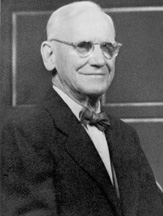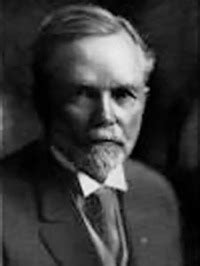Ein Zitat von Alexandre Dumas
Athos wollte, dass jeder seinen eigenen freien Willen ausübte. Er gab seinen Rat nie, bevor er danach gefragt wurde, und selbst dann musste er zweimal nachgefragt werden. „Im Allgemeinen bitten die Leute nur um Rat“, sagte er, „damit sie ihn möglicherweise nicht befolgen, oder wenn sie ihn befolgen sollten, könnten sie jemanden dafür verantwortlich machen, dass er ihn gegeben hat.“
Verwandte Zitate
Folgen Sie niemals dem Weg eines anderen, es sei denn, Sie sind im Wald und haben sich verlaufen und sehen einen Weg, dem Sie auf jeden Fall folgen sollten. Geben Sie keine Ratschläge, sie werden zurückkommen und Ihnen in den Arsch beißen. Befolgen Sie nicht den Rat von irgendjemandem. Mein Rat an Sie ist also, sich selbst treu zu bleiben, dann wird alles gut.
Der erste Schritt, den jemand tun muss, der Christus nachfolgen möchte, ist nach den Worten unseres Herrn der Verzicht auf sich selbst – das heißt auf seine eigenen Sinne, seine eigenen Leidenschaften, seinen eigenen Willen, sein eigenes Urteil und alle Bewegungen der Natur, indem sie Gott alle diese Dinge und alle ihre Taten opfern, was sicherlich Opfer sind, die dem Herrn sehr wohlgefällig sind. Und wir dürfen dessen niemals müde werden; denn wenn jemand, der sozusagen schon mit einem Fuß im Himmel steht, diese Übung aufgeben würde, wenn die Zeit für ihn gekommen wäre, den anderen dorthin zu stellen, würde er ein großes Risiko eingehen, verloren zu gehen.
In welchem Lebensbereich auch immer man sich den Herausforderungen des Mutes stellt, welche Opfer er auch immer ertragen muss, wenn er seinem Gewissen folgt – der Verlust seiner Freunde, seines Vermögens, seiner Zufriedenheit, sogar der Wertschätzung seiner Mitmenschen –, jeder Mensch muss entscheiden für sich selbst den Weg, den er einschlagen wird. Die Geschichten über vergangenen Mut können diese Zutat definieren – sie können lehren, sie können Hoffnung geben, sie können Inspiration liefern. Aber Mut selbst können sie nicht liefern. Dazu muss jeder Mensch in seine eigene Seele schauen.
Kostenlose Beratung ist eine traurige Zeitverschwendung. Erstens wird niemand danach handeln, wenn er nicht bereits dazu geneigt ist. Zweitens: Wenn ein Mann Ihnen seinen Fall vorlegt, ist die Vorstellung, dass er Sie um Rat bittet, eine höfliche Erfindung. Er deutet lediglich an, dass er dies tut, während es in Wirklichkeit sein eigentliches Ziel ist, Sie mit seinen persönlichen Aktivitäten vertraut zu machen. Er möchte mit jemandem reden, da er ein natürlicher Typ ist, der Klatsch und Tratsch verbreitet, und er nutzt Ihre Neigung, „Ratschläge zu geben“, um ein Publikum zu gewinnen.
Ich lege sehr wenig Wert darauf, zu fragen oder Ratschläge zu geben. Im Allgemeinen wissen diejenigen, die um Rat fragen, was sie tun möchten, und bleiben ihren Absichten treu. Ein Mann kann sich über verschiedene Punkte aufklären lassen, sogar über Zweckmäßigkeits- und Pflichtfragen; aber schließlich muss er sein Vorgehen selbst bestimmen.
Folgt aus „wendet euch“, dass ihr euch also umkehren könnt? Folgt aus „Liebe den Herrn, deinen Gott, von ganzem Herzen“ (Dtn 6,5), dass du also von ganzem Herzen lieben kannst? Was beweisen Argumente dieser Art, aber der „freie Wille“ braucht die Gnade nicht Gottes, sondern kann alles aus eigener Kraft tun ... Aber daraus folgt nicht, dass der Mensch aus eigener Kraft bekehrt wird, und die Worte sagen das auch nicht; sie sagen einfach: „Wenn du dich umkehren und es sagen willst.“ Mann, was er tun soll. Wenn er es weiß und sieht, dass er es nicht tun kann, wird er fragen, woher er die Fähigkeit dazu finden kann ...“ 164
Lev (Léon) Shestov, ein russischer Jude, der später französischer Jude wurde und sogar zum Katholizismus konvertierte, definierte Gott nicht durch seine Macht, die Gesetze des Universums zu erschaffen, sondern durch seine Fähigkeit, sie nach Belieben zu brechen – die Fähigkeit, Wunder zu vollbringen. Gott könnte die Vergangenheit annullieren! Zum Beispiel könnte Gott im Nachhinein entscheiden, dass Sokrates nie vergiftet wurde ... Die Assimilation erforderte ein Wunder: dass man aufhört, vorher jemand anderes zu sein ... Aber nur Gott kann es tun.
Das Schwierigste für den arbeitenden Künstler ist es eindeutig, seine eigene Vorstellung zu entwickeln und ihr zu folgen, ohne Angst vor den Beschränkungen zu haben, die sie auferlegt, so starr diese auch sein mögen ... Ich betrachte es als den klarsten Beweis für Genie, wenn ein Künstler seiner Vorstellung, seiner eigenen, folgt Seine Idee, sein Prinzip, ist so unerschütterlich, dass er diese Wahrheit ständig unter Kontrolle hat und sie nie loslässt, auch nicht aus Freude an seiner Arbeit.
Ratschläge sind eine Sache, die man freiwillig verschenkt, aber achten Sie darauf, dass Sie nur das nehmen, was es wert ist, dass Sie es haben. Wer sich über seine Ersparnisse von jemandem beraten lässt, der in solchen Angelegenheiten unerfahren ist, muss mit seinen Ersparnissen dafür bezahlen, dass er die Unrichtigkeit seiner Meinung beweist.




































